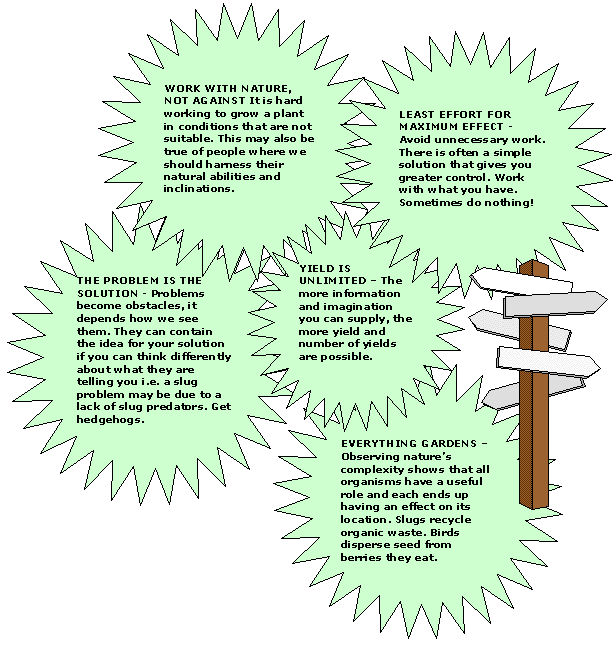 |
||
| The Principles |
BY ASSUMPTION OR BY DESIGN? Some systems approaches – such as organic farming or public consultation – are carried out using a specified list of techniques in one or a number of processes. There is the assumption that the technique or process will deliver a desirable outcome. However, mechanically following a technique or a process will not lead to understanding, nor is there any evaluation of outcome from which improvements or modification can be made. It is not a system that incorporates design. Permaculture is a design methodology in which there is a large, creative element that seeks to integrate the many components of the design challenge into an optimised whole. This creative element is tied to evaluating the specific circumstances of the design challenge, seeing where the ethical foundation of Permaculture provides some general underpinning, and seeking to incorporate the lessons learnt from nature into our solutions. Permaculture is therefore not a list of techniques or processes. The contrast is thus between inflexible systems where good intention is an assumption, and a system that is reflective, flexible and -above all – is definitional about what it sets out to achieve. PRINCIPLES THAT DEFINE The ethical foundation of permaculture provides a framework for designing for sustainability, but it is the principles of Permaculture Design that give it definition. These principles can appear to be homilies i.e. simplistic moralising on what you should do (a bit like organic certification). However, it is probably better to think of the principles proverbs, maxims or adages – sayings based on experience that have common use. Think of a stitch in time saves nine. These principles give us sayings based on the experience of natural, self-regulating systems, and they provide guidance, signposts and sometimes just good common sense to help in our design processes. The five basic design principles are shown below:
There are more principles in Permaculture Design. They cover many of the design challenges we face in building sustainable systems. Read more Mark Fisher - Permaculture Design course handout notes www.self-willed-land.org.uk mark.fisher@self-willed-land.org.uk |
